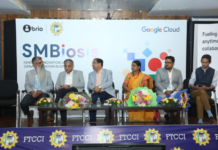Digital transactions are aimed at solving specific customer pain points and therefore tend to be smaller in size and value, and of shorter duration than traditional contracts
As software services companies, post the coronavirus outbreak, are helping clients accelerate their digital transformation initiatives, the nature of deals is becoming shorter and smaller.
Digital transactions are aimed at solving specific customer pain points and therefore tend to be smaller in size and value, and of shorter duration than traditional contracts.
“Some customers want to introduce a big digital programme, so they break it into smaller programmes and then take it step by step. So, we see a higher percentage of smaller deals in the overall pipeline,” C. Vijayakumar, chief executive officer and managing director, HCL Technologies Ltd said in a recent interview. “As we see, I think there are lots of mid-sized and large deals as well in the pipeline. We have always enjoyed a very good renewal rate of over 90% in our services business, and it continues to be in that range.”
Short-term deals are being increasingly accepted by both clients and vendors because of the overall macro environment beset with various challenges.
“In our view, clients prefer short tenure digital deals because they can easily track their return on investment with the launch of new platforms or programmes in a phased manner. So, many clients do not opt to launch the entire transformation programme at one go, given the higher risk,” said Ashis Dash, IT analyst at Sharekhan by BNP Paribas.
From an software services provider’s point of view, short-term contracts are beneficial given the faster conversion of revenue. “Further, the vendor is able to push for price increase during signing of the next phase of the digital transformation programme based on its understanding of earlier programmes and complexities of the new deals, which would be beneficial in terms of margins for the IT services vendor,” added Dash.
The short-cycle digital deals typically span for about 6-12 months and clients usually choose the existing vendor to execute subsequent phases of its transformation programme.
Historically, the software services companies have been organized to deliver large projects at low costs. However, digital projects have opposite characteristics.
“These are smaller, complex projects where margins as a percentage of revenue are higher. Digital projects, like consulting projects, are also the gateway to downstream work, which presents larger and longer maintenance opportunities. Digital projects need to be viewed as the tip of the spear in IT, much like consulting projects,” said Abhisek Mukherjee, co-founder and director, Auctus Advisors.
During the March quarter, none of the local software services companies bagged a mega deal worth $1 billion or more. To be sure, the share of digital revenue continues to rise for most of these companies.
For Infosys Ltd, revenue from digital business grew 38.8% in constant currency from a year earlier and contributed 59.2% to the total revenues for the quarter ended March. For HCL Technologies, digital or ‘mode 2’ business grew 31.6% in constant currency from a year ago and contributed 27.2% to the revenues for the March quarter. Some such as Tata Consultancy Services Ltd and Wipro Ltd have stopped calling out digital revenues separately as the lines between traditional and digital offerings are getting blurred.
Going forward, the share of the digital revenue is only expected to rise. Organizations across industries are adopting digital transformation strategies and quickly adapting to new ways of working to serve their customers. The worldwide IT spending is projected to total $4.4 trillion in 2022, an increase of 4% from 2021, according to the latest forecast by research firm Gartner Inc. The major growth drivers of this massive digital transformation are the adoption of industry 4.0, the use of advanced technologies such as cloud, IoT, big data and analytics, mobility, and social media.
Also read: CIO News interviews Shri Wangki Lowang, Minister (IT) of Arunachal Pradesh
Do Follow: CIO News LinkedIn Account | CIO News Facebook | CIO News Youtube | CIO News Twitter
About us:
CIO News, a proprietary of Mercadeo, produces award-winning content and resources for IT leaders across any industry through print articles and recorded video interviews on topics in the technology sector such as Digital Transformation, Artificial Intelligence (AI), Machine Learning (ML), Cloud, Robotics, Cyber-security, Data, Analytics, SOC, SASE, among other technology topics






